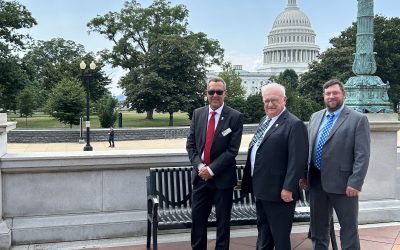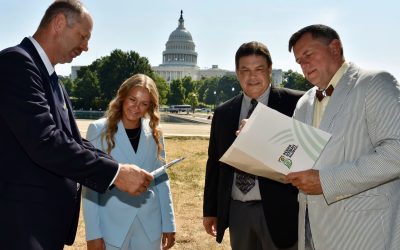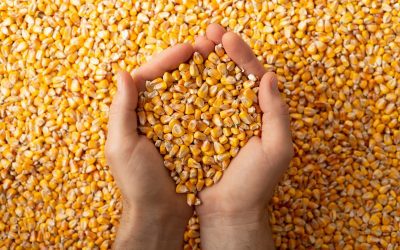Skyrocketing prices represent significant and costly challenge for Hoosier farmers
Posted: March 25, 2022
Category:
ICMC, Indiana Corn and Soybean Post - Winter 2022, ISA, News
As you drive from town to town in Indiana, it is nearly impossible to avoid driving by a farm. In fact, more than half of Indiana’s total land area is made up of farms, and our agriculture industry is responsible for employing more than 180,000 Hoosiers. As the tenth-largest farming state in the country, it is no secret that the agriculture industry in Indiana truly is the lifeblood of our state – providing jobs, food, and other needed products to the entire state, country, and world.
Farming is not an easy way to make a living given the risks that just come with the territory when you are growing crops or raising livestock. This year, farmers are facing rising costs of critical inputs like seeds, fertilizer, pesticides, herbicides, equipment and labor due to runaway inflation. For example, glyphosate, the active ingredient in Round-Up and other weedkillers, is up 250 percent from this time last year.

Skyrocketing prices represent a significant and costly challenge for Hoosier farmers right before planting season begins. This has resulted in many farmers having to make costly last-minute adjustments to the types of crops they are going to plant for the upcoming season because farmers are having to plant to crops with higher projected market prices and lower input costs. For instance, it is projected that the acreage that will be planted of soybeans in 2022 is expected to surpass corn for only the second time in U.S. history.
The root cause of runaway inflation that is negatively impacting Hoosier farmers is the COVID-19 pandemic and the flawed economic policies that have been enacted over the past year. In Washington D.C., multiple partisan bills have been signed into law that spend trillions in taxpayer dollars. This has resulted in inflation rates that are at a 40-year high – including a staggering seven percent increase in food prices last month. More broadly, this means that the cost of groceries, gas, and rent continue to climb while Hoosiers’ hard-earned dollars continue to buy less at the register.
We cannot spend our way out of this inflation crisis; in fact, more Washington spending would only be adding fuel to the fire. The only way to tame the skyrocketing inflation in our economy is through sound fiscal policy. In addition, the administration needs to change course and stop the regulatory attacks on our energy industry.
Energy independence is critical to controlling fuel prices. High fuel prices affect every aspect of our economy including the agricultural industry. In the long term we need to address the supply chain dependence on imports particularly from China. The pandemic has highlighted this vulnerability we have as a nation. Ultimately, Washington D.C. needs to prioritize the family budget over the federal budget by ending the reckless spending and making our economy more self-dependent and less reliant on other countries for our prosperity.
At a time when global food prices are already at decade highs and our grocery stores are struggling to stock their shelves, Congress needs to act to ensure Hoosier farmers can keep our grocery stores stocked and prices affordable for hard-working American families.



